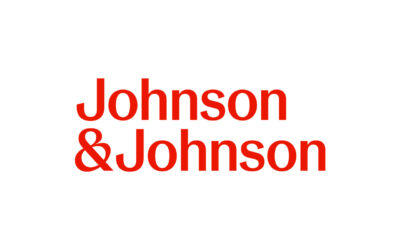Every new year, an abundance of news and opinion articles project the trends and changes that health care providers can expect in the coming year. This column takes a different approach. Rather than ask
what the providers of outpatient surgical care can expect in 2012, let’s focus on what patients who need outpatient surgery in 2012 can expect.
First, let’s look at some good news. Thanks to several changes that the Centers for Medicare & Medicaid Services (CMS) made to the Medicare program late last year, patients who need outpatient surgery will have more control over choosing the site of service for their care.
When it comes to giving patients greater decisionmaking power over where to receive the care they need, we need to address two key areas: (1) giving patients the information they need to make meaningful decisions about their care and (2) ensuring access to the various high-quality providers of that care.
One of the most far-sweeping changes that CMS made to the Medicare program last year—the introduction of a quality reporting program for ASCs—addresses the first of these two areas. Medicare’s new quality reporting program will start small in 2012 but should lead to ground-breaking change over time.
The ambulatory Surgery Center association (ASCA) has long advocated for a national quality reporting program that gives patients more of the information they need to compare providers across settings in meaningful ways and make informed choices about their health care. ASCA is optimistic that CMS’s new ASC quality reporting program represents the first steps toward this goal. ASCs have much work to do to be able to comply with even the early reporting requirements of this program, and we encourage all ASCs to visit ASCA’s web site at ascassociation.org and call on us directly at asc@ascassociation.org or 703.836.8808 for any help they need. At the same time, ASCA is celebrating this important new development and the new benefits it means for patients.
another change that CMS made to the Medicare program in late 2011 that helps contribute to enhanced patient choice is CMS’s decision to eliminate its requirement that ASCs provide certain information to all of their patients 24 hours before their procedures are performed. This change eliminates the need for patients to wait 24 hours after diagnosis to receive treatment in an ASC. For patients who have to travel a long way to visit their surgeon and undergo surgery, and for those who have difficulty arranging the transportation they need to access that care, this regulatory revision means more convenient care and a greater likelihood that they will receive the services they need. As CMS has acknowledged, this change also saves patients and Medicare money by ensuring that patients aren’t forced to visit a more expensive facility to receive same-day care.
In 2012, patients will also benefit from CMS’s late-2011 decision to increase the ASC reimbursement rate by 1.6 percent rather than the more anemic 0.9 percent proposed originally. Increasing payments to ASCs as a means of saving patients money may sound counterintuitive, but in reality, that change is exactly what is needed. As ASC reimbursements continue to drop as a percentage of hospital outpatient department (HOPD) payments, we are seeing an increasing number of ASC conversions to HOPDs. When those conversions occur, patients and Medicare pay almost 80 percent more for the same services. Without greater parity between Every new year, an abundance of news and opinion articles project the trends and changes that health care providers can expect in the coming year. This column takes a different approach. Rather than ask what the providers of outpatient surgical care can expect in 2012, let’s focus on what patients who need outpatient surgery in 2012 can expect.
First, let’s look at some good news. Thanks to several changes that the Centers for Medicare & Medicaid Services (CMS) made to the Medicare program late last year, patients who need outpatient surgery will have more control over choosing the site of service for their care.
When it comes to giving patients greater decisionmaking power over where to receive the care they need, we need to address two key areas: (1) giving patients the information they need to make meaningful decisions about their care and (2) ensuring access to the various high-quality providers of that care.
One of the most far-sweeping changes that CMS made to the Medicare program last year—the introduction of a quality reporting program for ASCs—addresses the first of these two areas. Medicare’s new quality reporting program will start small in 2012 but should lead to ground-breaking change over time.
The ambulatory Surgery Center association (ASCA) has long advocated for a national quality reporting program that gives patients more of the information they need to compare providers across settings in meaningful ways and make informed choices about their health care. ASCA is optimistic that CMS’s new ASC quality reporting program represents the first steps toward this goal. ASCs have much work to do to be able to comply with even the early reporting requirements of this program, and we encourage all ASCs to visit ASCA’s web site at ascassociation.org and call on us directly at asc@ascassociation.org or 703.836.8808 for any help they need. At the same time, ASCA is celebrating this important new development and the new benefits it means for patients.
another change that CMS made to the Medicare program in late 2011 that helps contribute to enhanced patient choice is CMS’s decision to eliminate its requirement that ASCs provide certain information to all of their patients 24 hours before their procedures are performed. This change eliminates the need for patients to wait 24 hours after diagnosis to receive treatment in an ASC. For patients who have to travel a long way to visit their surgeon and undergo surgery, and for those who have difficulty arranging the transportation they need to access that care, this regulatory revision means more convenient care and a greater likelihood that they will receive the services they need. As CMS has acknowledged, this change also saves patients and Medicare money by ensuring that patients aren’t forced to visit a more expensive facility to receive same-day care.
In 2012, patients will also benefit from CMS’s late-2011 decision to increase the ASC reimbursement rate by 1.6 percent rather than the more anemic 0.9 percent proposed originally. Increasing payments to ASCs as a means of saving patients money may sound counterintuitive, but in reality, that change is exactly what is needed. As ASC reimbursements continue to drop as a percentage of hospital outpatient department (HOPD) payments, we are seeing an increasing number of ASC conversions to HOPDs. When those conversions occur, patients and Medicare pay almost 80 percent more for the same services. Without greater parity between









